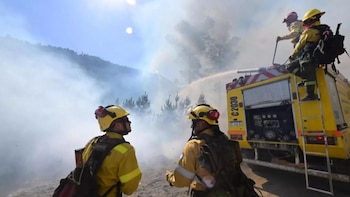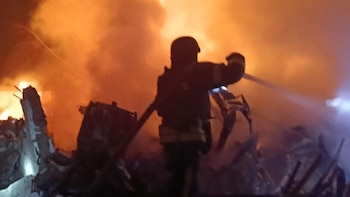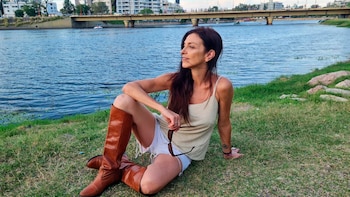
(ATR) Talks about proposed countermeasures against COVID-19 for the Tokyo 2020 Olympic Games have begun.
Tokyo 2020 organizers met with representatives of the national government and Tokyo Metropolitan Government to discuss a basic scheme of countermeasures while laying out a more detailed game plan for future meetings. The first of five scheduled gatherings convened in Tokyo on Friday with an interim summary planned for compilation around the end of 2020.
Tokyo 2020 chief executive officer Toshiro Muto addressed assembled media in the Japanese capital and virtually following the meeting
"To hold safe and secure Games, COVID-19 control measures are the biggest challenge," Muto said.
"Athletes, Games officials and also the spectators are three categories for the countermeasures and we have to make sure about the journeys for all – for example testing for COVID-19, what is necessary and what is required," Muto said. "By the end of this month we are going to discuss how to address the journey for the athletes."
The meeting was chaired by deputy chief cabinet secretary Kazuhiro Sugita, representing the national government. Also in attendance were Japanese Olympic Committee and Paralympic Committee members, with infectious disease experts joining as advisors.
According to Tokyo 2020 organizers, the goal of all discussions is to ensure a safe and secure delivery of next summer’s Games for the three categories of visitors to Tokyo, taking into consideration infection status, sporting event status and anti-virus measures implemented in and outside of Japan.
Muto mentioned the start of the U.S. Open Tennis Championships in New York as one event that is being observed and can be learned from, although the Olympic Games are much larger and present additional challenges.
"Inside and outside of Japan there are major sports events going on," Muto said. "We had a report of the events today and in Japan we have J-League and professional baseball games, so we can refer to the information on how they are taking countermeasures against COVID-19.
"We have 33 sports and 399 events so the scale is very, very different, so we can’t really use what they have as countermeasures," he added.
Muto emphasized the collaboration required from all Olympic Games stakeholders in determining and agreeing to countermeasures, naming the IOC, IPC, NOCs, NPCs and the World Health Organization.
"At the end of September, we will have a coordination commission meeting where we can focus on sharing the information of these discussions for COVID-19 countermeasures," Muto said of the meeting involving additional stakeholders.
"We have to reach certain conclusions, that was my opinion I expressed during the meeting," Muto said. "I’m not really sure how the discussions will evolve, but my timeline is by the end of this year, we’d like to come to some conclusion.
"You need to allocate budget and human resources, so I think it very important for us to come up with a certain conclusion by end of December, but that is not 100 percent.
"We are going to continue discussions about the countermeasures or certain aspects, even right before the delivery of the Games, where we might need to come up with some new ideas."
Muto was asked about protocol for spectators and overseas visitors arriving to Tokyo to attend the Games considering current restrictions.
"We will have to consider what the immigration control would be at that time," Muto said. "From more than 100 countries, we have restrictions for them to enter Japan. Going forward it might change, but I can’t really talk about spectators anymore because we haven’t discussed that much detail."
The Japanese sport leaders also talked about simplification of the Games, one example being fewer buses for stakeholders and spectators.
"Simplification and COVID-19 countermeasures are not really contradictory, but some aspects such as the reduction of the number of buses and during transportation we might have some crowded situations," Muto said.
"First, we have to discuss simplification and then we discuss COVID-19 countermeasures next to see if the simplification methods can be used as is or if we have to change some of the aspects."
The second of the five planned meetings will deal with border control and transportation for athletes and other parties. A third meeting will involve anti-virus measures at the Olympic and Paralympic Village and venues.
The fourth meeting will tackle anti-virus measures for stakeholders and steps that municipalities involved in the Tokyo Games should take.
A fifth and final meeting will involve anti-virus measures and logistics for spectators.
Muto stated that a vaccine is not imperative in order to stage the Olympic and Paralympic Games next summer.
"The IOC and WHO already discussed this matter and it is not a condition of delivery the 2020 Games," he said. "If vaccines are developed, then we would really appreciate it and for Tokyo 2020 this would be great, but if you ask me if it is a condition – it’s not a condition."
Written by Brian Pinelli with reporting from Hironori Hashimoto in Tokyo
For general comments or questions,click here.
Your best source of news about the Olympics is AroundTheRings.com, for subscribers only.
Últimas Noticias
Utah’s Olympic venues an integral part of the equation as Salt Lake City seeks a Winter Games encore
Utah Olympic Legacy Foundation chief of sport development Luke Bodensteiner says there is a “real urgency to make this happen in 2030”. He discusses the mission of the non-profit organization, the legacy from the 2002 Winter Games and future ambitions.

IOC president tells Olympic Movement “we will again have safe and secure Olympic Games” in Beijing
Thomas Bach, in an open letter on Friday, also thanked stakeholders for their “unprecedented” efforts to make Tokyo 2020 a success despite the pandemic.

Boxing’s place in the Olympics remains in peril as IOC still unhappy with the state of AIBA’s reform efforts
The IOC says issues concerning governance, finance, and refereeing and judging must be sorted out to its satisfaction. AIBA says it’s confident that will happen and the federation will be reinstated.

IOC president details Olympic community efforts to get Afghans out of danger after Taliban return to power
Thomas Bach says the Afghanistan NOC remains under IOC recognition, noting that the current leadership was democratically elected in 2019. But he says the IOC will be monitoring what happens in the future. The story had been revealed on August 31 in an article by Miguel Hernandez in Around the Rings

North Korea suspended by IOC for failing to participate in Tokyo though its athletes could still take part in Beijing 2022
Playbooks for Beijing 2022 will ”most likely” be released in October, according to IOC President Thomas Bach.




